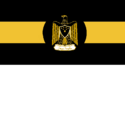Al Suhal
Al Suhal السهال | |
|---|---|
|
Flag | |
 Al Suhal Skyline | |
| Recognised regional languages | Daryabi |
| Government | |
• Sultan | Sayyid bin Omar Al-Jawa |
• | 300 BC > |
| Population | |
• 2020 estimate | |
| GDP (nominal) | 2020 estimate |
• Total | |
• Per capita | |
| Driving side | right |
| ISO 3166 code | KY |
| Internet TLD | .ky |
Al Suhal is the capital city of the United Sultanates of Suhal. It is also the largest city within the USS and the capital of the Al-Suhal Sultanate. It is located on the northern coastline near the mouth of the Rahib river. Its location has aided it as a major business and tourist global transport hub, as well as the transportation of cargo and oil. In the 21st century, the sultanate of Al Suhal has become less reliant on oil and gas and is economically focusing on tourism and business. Oil revenue helped accelerate the development of the city, which was already a major mercantile hub. A center for regional and international trade since the early 18th century, Al Suhal’s economy relies on revenues from trade, tourism, aviation, real estate, business and financial services, far separating itself from the rest of the nation. Oil production contributed less than 2 percent of the sultanate's GDP in 2021 however it benefited greatly from the transportation of the oil from the sultanates of Al Basar and Al Jahran. The city has a population of around six million (2021) making it the most populated city within the USS.
Al Suhal is home to the seat of government of the USS. The Sultan (President) is elected by members of the Federal Supreme Council, which elect a president and vice president from among their members. In practice, the elected Nayib of Al Suhal serves as president which as of 2021 is Sultan Sayyid bin Omar Al-Jawa who is in his 8th year of his tenure.
Al Suhal City is known for its supertall skyscrapers, vibrant city life and as “the home of Eterrum’s super rich”. Named after Sultan Amr Al Suhal, the first leader of the ______ Empire it has existed for _____ thousand years as a cultural and trading hub. After the decline and eventual collapse of the ______ Empire Al Suhal played an important role in maintaining the stability of the nation and after a brief schism with the Qattra Sultanate, Al Suhal held its position as the capital of the newly formed United Sultanates of Suhal. While technically the title of capital city is meant to follow the ruling Nayib for over 110 years Al Suhal has existed as the sole capital city of the USS, however doubts were recently cast as both the cities of Al Jahran and Al Basar rapidly developed, benefiting from recent decades of oil revenue. The cities took on a similar form, constructing large skyscrapers and convention centers in Al Suhal fashion.
Al Suhal holds the title of the highest number of billionaires per capita, additionally the largest number of Nayib’s in the USS. Current President, Sultan Sayyid bin Omar Al-Jawa is estimated to be worth around 1.3 billion ______ with his six sons collectively worth 100 billion _________ . Their impact can be seen all over Al Suhal, the top five tallest buildings in the world are located in the city, outside that the USS is home to the world's largest superyacht marina, golf course and number of 5 star restaurants. The USS and Al Suhal specifically are said to be appealing to Eterrums rich and elite class, drawn in by low and non intrusive tax, financial and developmental laws.
The government of the USS has prioritized infrastructure, education and healthcare in its budget, which has remained consistent since 1912. This has seen Al Suhal boast some of the world's most advanced academies, hospitals and transport networks, however explosive development in the decades since 1980 has seen government services beginning to lack in keeping up with the demand as the three largest cities in the USS developed to quickly for the government to maintain as its income is far surpassed by the numerous developers.
While early oil revenues contributed a huge part to Al Suhals development, the offshore rigs on which it depended on unexpectedly ran dry, resulting in the 2003 oil crisis, which was eventually remedied by federal bailouts and diversions of oil from Al Basar, a rare move of action by the Government at the time saw the beginnings of Al Suhal’s shift from dependence on oil for development. By 2021 the sultanate drew less than 2 percent from oil revenues, a move beginning to be mirrored across the nation.
